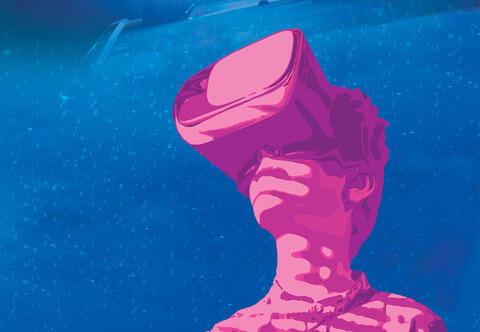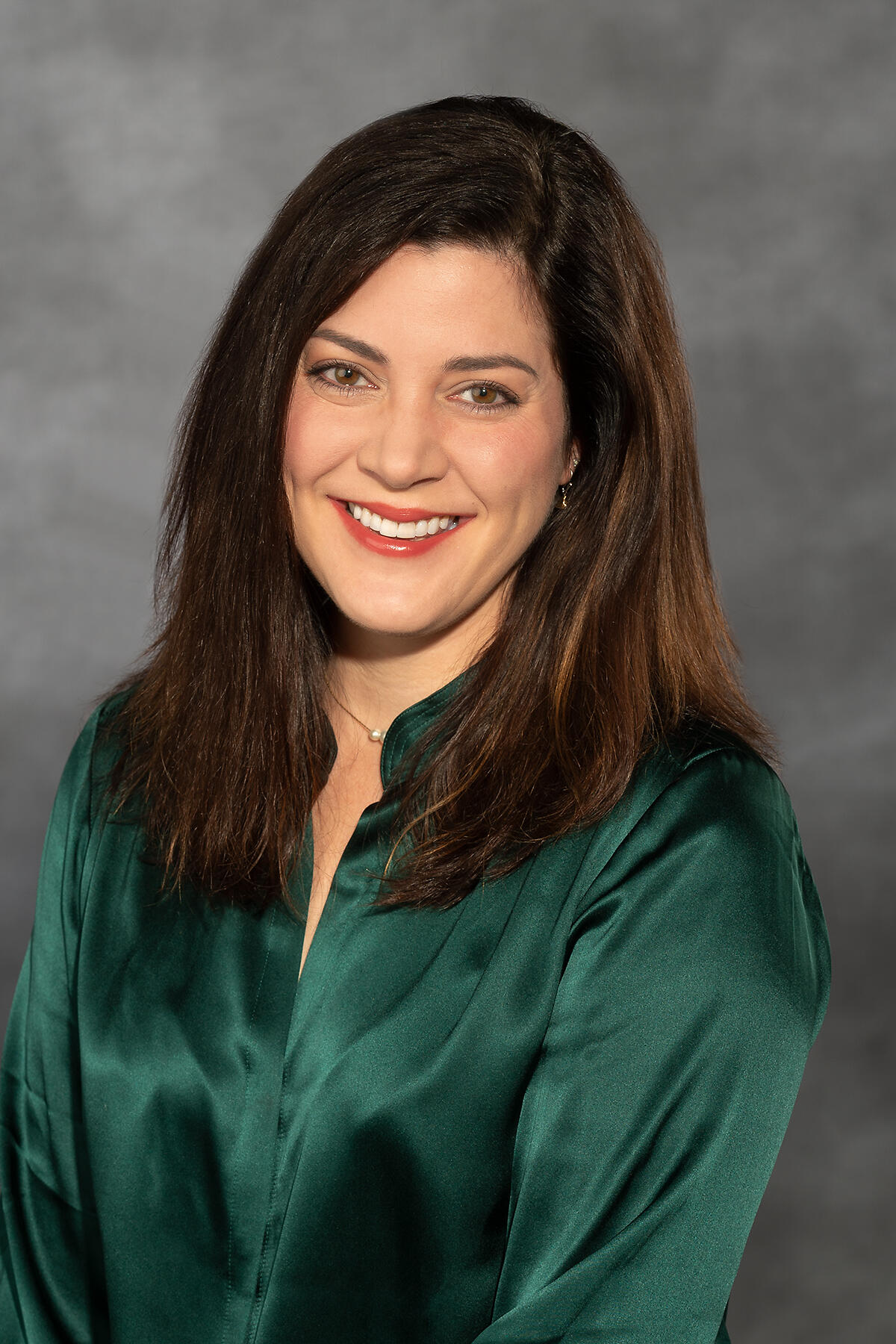
March 8, 2023
Professor’s virtual reality research looks to pave way for more equitable police interrogations of young adults
Share this story
Hayley Cleary, Ph.D., an associate professor of criminal justice in the L. Douglas Wilder School of Government and Public Affairs at Virginia Commonwealth University, is using virtual reality to help police, legal experts and policymakers better understand the difference between permissible police interrogation techniques and coercion in police interrogations by putting them in the subject’s shoes.
Research shows that youths’ developmental immaturity makes them vulnerable and more likely to provide false confessions to escape police pressure or appease investigators. The boundaries of this fine line have yet to be fully defined, and courts determine voluntariness on a case-by-case basis.

“Virtual reality is uncharted territory for interrogation research and is poised to transform the way we study these interactions,” Cleary said. “VR enables us to simulate real-world interrogations while also retaining experimental control and ensuring participant safety — it’s the best of both worlds from a research perspective.”
The study, supported by a grant from the VCU Presidential Research Quest Fund, is aimed at informing both law and policy, particularly for individuals of color who may experience heightened disadvantage in interrogations. Cleary’s aim is to help establish equitable legal processes and reform systems for all youth.
Filmed in a Richmond Police Department interrogation room, the VR simulation places research participants in an immersive scenario in which a detective questions a young person using a variety of interrogation techniques. Sitting closely beside the questioned subject and across from detectives, the research participant witnesses the full interrogation. Currently, the research participants are young adults ages 18-25, but Cleary plans to expand to younger adolescents and to police officers, parents and young people with histories of trauma so that they can better understand the experience of being interrogated.
The sensory VR immersion experience is called “embodiment,” a perceived substitution of a person’s physical identity with that of a virtual body. Embodiment creates a powerful sense of agency and participatory involvement throughout the process, Cleary said.
Participants report their perceptions of custody and coercion during and after the VR experience. The study also captures physiological biofeedback signals throughout the entire virtual experience. Combining the qualitative and quantitative data will give Cleary an unprecedented window into the minds of young interviewees – and into how law enforcement can adapt interrogation methods to get more accurate information without misleading or pressuring vulnerable interviewees.
“This work could change the way the legal system understands coercion in police interrogations,” Cleary said. “Confessions must be given voluntarily to be admissible as evidence, yet courts often struggle to recognize the psychological aspects of coercion. This tool could also help police investigators develop empathy and rapport-based interviewing skills because they can experience interrogation from the suspects' perspective.”
Cleary first conceptualized the scenario a few years ago, but she needed a partner to help implement the project on the technical side. Serendipitously, she learned about David Waltenbaugh, a VCU double alumnus with a B.S. in economics and a M.A. in financial economics from the VCU School of Business.
"This work could change the way the legal system understands coercion in police interrogations. Confessions must be given voluntarily to be admissible as evidence, yet courts often struggle to recognize the psychological aspects of coercion. This tool could also help police investigators develop empathy and rapport-based interviewing skills because they can experience interrogation from the suspects' perspective."
Hayley Cleary, Ph.D., associate professor of criminal justice at the L. Douglas Wilder School of Government and Public Affairs at VCU
Waltenbaugh is CEO of Root VR, a Richmond-based organization focused on developing virtual platforms to support adolescents’ mental health and therapy. After two years of planning, Waltenbaugh and Cleary combined the research and tech angles to bring the project to life. They connected with Brian Dismore of Moon Day Productions and brought on two more VCU connections — Doug Blackburn, adjunct professor of theatre, and Joel DeVaughn, a theatre undergraduate student — to join the team as actors.
“Virtual reality is primarily recognized as a means of next-generation entertainment and social engagement, but the technology's incredible potential to change the future of science, education, health care, criminal justice and so many other areas of study remains largely unappreciated,” Waltenbaugh said. “It has the ability to change our understanding of the world and the way we experience it.”
Subscribe to VCU News
Subscribe to VCU News at newsletter.vcu.edu and receive a selection of stories, videos, photos, news clips and event listings in your inbox.







